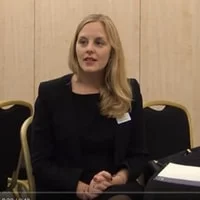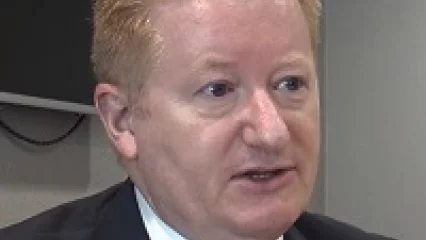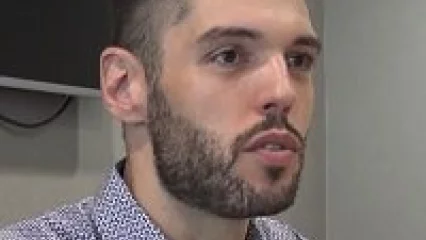[0:34] Q: What kind of questions should applicants ask to make a good impression during the interview?
[0:40] A: During the interview with a school representative it’s important for candidates to know more about the MBA experience. They need to understand how they are going to benefit from the programme. I think it’s really important for them to understand what will be the experience on campus, to know if they are joining a big programme or a small programme, and also be aware of the profiles of their peers. Will the approach be hands-on approach or it will be just theoretical courses? I think that when choosing an MBA, candidates should find out more about this experience because all programmes are very different.
Check out: Getting Admitted to the ESADE MBA (Video)
[1:36] Q: Are there some common mistakes that applicants could easily avoid during their application?
[1:42] A: It’s really important to write a very personalised application. We need to know that the candidate is really motivated to apply to that school in particular. We need to understand that the candidate really knows the programme and has done research about the school. It shouldn’t be just copy and paste from another business school application. I think it’s also very important for candidates to tell us their professional objectives. They should be careful with that and shouldn’t just mention that they want to do an MBA just because it’s an idea that they had. They need to have some kind of career plan and it’s really important to make sure that we would be able to help them achieve their goals after the MBA.
Check out: Common Mistakes to Avoid in Your MBA Application
[2:44] Q: Would you advise the applicants to work with a coach while preparing their application?
[2:51] A: Not necessarily. Of course if they need some advice on preparing the interview etc., they could resort to the services of a coach. It’s really up to the candidate. Our essays are quite straightforward in terms of questions. There are questions about their motivations, their professional objectives, and why they chose the HEC Paris MBA programme, but there are also personal questions where we ask them to be really honest. As a recruiter and as someone being in contact with candidates, I can say that we, the representatives of HEC Paris, are there to give advice and feedback to candidates and help them in their application. They can just contact us directly.
[4:12] Q: What do you pay most attention to in the application essay?
[4:20] A: In the first part there is a question about the candidates’ motivations and why they want to join the HEC Paris MBA programme. They really need to make us feel that this choice is the best one for them and for their career. They need to point to aspects of the programme that they like, so that they need to show us that they know the programme and have done their research. We also want our candidates to have clear career goals. Of course these goals can change during the programme, but it’s important to see that they already have a career plan which is in line with their experience.
[5:41] Q: What do you look for in a CV?
[5:48] A: When it comes to the CV, we first check the career progression and the professional experience of the candidates. Then we look at their international background and experience. We check if they had studied abroad or worked in a multicultural environment. And of course we look at their academic background as well as any leadership potential that they may have. We look at the CV as a summary of the entire application. On one page we should be able to see all these key aspects.
[7:10] Q: How important is the GMAT test for admission to your programme?
[7:14] A: Of course the GMAT is important but it’s not the only thing we evaluate. We pay equal attention to every component of the application. At HEC Paris, the average GMAT score is 690, so we always encourage our candidates to try to get close to that score. We also advise students to retake the GMAT if their score is too low. But, as I said, we also evaluate all the other aspects, so a good GMAT score can compensate for a low GPA. We have a rolling admission process so candidates are competing with those who are applying at the same time, so a higher GMAT score can give you an edge if you are competing with candidates with similar profiles.
[8:40] Q: Do you accept the GRE as well?
[8:43] A: We accept the GRE just as we do the GMAT. We encourage candidates who don’t have strong quantitative skills to take the GRE.
[9:01] Q: How does a top test score impact the chances of getting a scholarship?
[9:06] A: Test scores are taken into account during the scholarship evaluation process. Our scholarship is called HEC Scholarship for Excellence and it is a merit-based scholarship based on certain criteria that also include GMAT and GRE scores.



